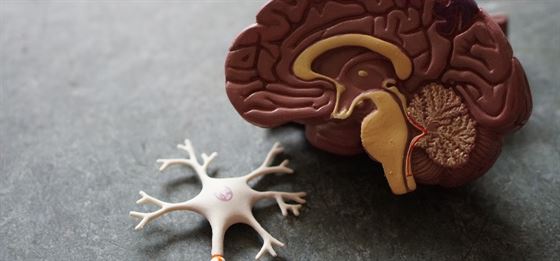
Understanding Emotions

Emotions play a vital role in your lives, influencing how you think, feel and behave. Gallup's annual Global Emotions Report 2021 revealed some interesting insights. According to the report, globally people were more worried, stressed and sad as compared to any time in the past 16 years. The respondents reported having few positive experiences when compared to 2020. Emotions can be powerful motivators, helping you achieve goals and they can also be obstacles which stand in the way of success. Despite their importance, there are many ways people misunderstand emotions, leading to problems in both their personal and professional lives. Let's dispel some of those myths and set the record straight about what emotions are all about.
Myth 1. Emotions are a Sign of Weakness
It is believed emotions are a sign of weakness and people who experience them are somehow not as strong as those who don't. This couldn't be further from the truth! Emotions are a natural and normal part of your life and they do not make us weak. It takes a great deal of strength to be able to feel and express your emotions in a healthy way. Emotions help us to process information and make decisions. Without them, you would be unable to function properly.
Myth 2. Emotions Should be Controlled
Another common misconception is that emotions should be controlled. While it's important to be able to regulate your emotions, suppressing them entirely is not healthy. When you try to bottle up your feelings, they can come out in other ways, such as through physical illness or behavioral problems. Some people believe it's best to just "pretend" everything is okay, but this can make things worse in the long run. It's important to find healthy outlets for your emotions, such as talking to a trusted friend or family member, writing in a journal or participating in therapy.
Myth 3. All Negative Emotions are Bad
It's natural to want to avoid negative emotions, but the truth is they serve an important purpose. Negative emotions like anger, fear and sadness help you recognize when you need to take action. Without them, you would be more likely to put yourself in harm's way without even realizing it.
Myth 4. Positive Emotions are Always Good
Just like negative emotions, positive emotions also serve a purpose. While it might seem like a good thing to feel happy all the time, too much happiness can actually lead to problems. For example, excessively optimistic people sometimes have difficulty coping when things don't go their way. Toxic positivity, which is the belief that only good things happen to good people, can also be unhealthy.
Myth 5. Emotions are Black and White
The final myth on this list is emotions are black and white; either you are feeling one emotion or you are feeling another. However, this isn't the case at all. Emotions exist on a continuum and it's possible to feel multiple emotions at the same time.
Understanding the Wheel of Emotions
Robert Plutchik, a professor at the Albert Einstein College of Medicine and the University of South Florida is famous for creating a Wheel of Emotions. This 'wheel' illustrates the eight most basic emotions and their opposites. The eight emotions are:
- Joy vs. Sadness
- Anger vs. Fear
- Disgust vs. Trust
- Anticipation vs. Surprise
According to the Wheel of Emotions, all other emotions are a mix of these primary ones. For example, love is a mix of joy and trust, while hate is a mix of anger and disgust. Understanding this concept can help you to better understand your emotions and the emotions of others.
5 Ways to Deal With Emotions
If you are ever feeling overwhelmed by your emotions, remember that it's perfectly normal and there is no need to feel ashamed or embarrassed. Here are five ways to deal with your emotions in a healthy way:
1. Talk to Someone you Trust
Talking about your feelings can be a huge relief and can help you to better understand them as well as know how to manage them in a healthy manner.
2. Write About Your Emotions
Writing is a great way to process your emotions and can help you to structure feelings in a way that they do not overwhelm you. Journaling provides a space for you to express your thoughts and feelings without judgment.
3. Participate in Therapy
Therapy can be an incredibly helpful way to deal with your emotions. A therapist can provide support and guidance as you work through your feelings, in a safe space without an agenda.
4. Exercise
Exercise is a great way to release pent-up emotions. It can also help to improve your mood and reduce stress levels.It works on physical and psychological levels, to bring the body and mind into balance.
5. Practice Relaxation Techniques
Relaxation techniques such as meditation, mindfulness and breathing exercises can help to calm your emotions and relieve stress, nurturing equanimity.
Emotions are a normal and essential part of our lives. Don't let anyone tell you otherwise! If you are struggling to deal with your emotions, reach out for help. There is no shame in getting the support you need to help you live a well-balanced life.
Articles
Build your awareness and get inspired with our researched articles on how you can strengthen your well-being
Popular Topics
An OTP has been sent to the email address
provided.
Please check your Inbox and Spam folders.

What Would You Like to Speak with a Specialist About?
Mental Fitness Journey starts Now!
Chearful Connects you with Top-tier Qualified Wellness specialists for the Price of a cup of Coffee!

Next Steps
- A Client Team member will reach out to you to schedule a session with the most suitable specialist.
- You will receive an email with a 10% Discount Code* for your 1st session.
- We invite you to Explore the Platform & Sign Up today! *Upto a maximum of $10 discount on a session purchased




 2273 Read
2273 Read




.jpg)










.png)
.jpg)

.jpg)

.jpg)




.jpg)


































.jpg)

.jpg)


















































